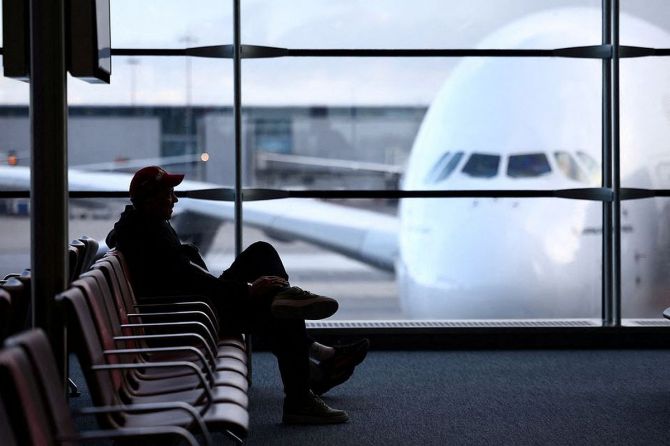Pseudonymous or anonymous nature of the social media handle, analysis of the geopolitical situation and presence of VIPs onboard are some of the new criteria that agencies will keep in mind while considering the seriousness of a bomb threat made to Indian airlines.

The new set of guidelines for civil aviation security and intelligence agencies have been issued by the Bureau of Civil Aviation (BCAS) in view of the 'evolving security challenges', especially the 'emerging trend' of issuing hoax bomb threats through various social media platforms.
In the past two weeks, more than 510 domestic and international flights have received bomb threats that later turned out to be hoaxes.
The threats were issued mostly through anonymous handles on social media platform X.
This has caused 'major' operational and financial distress for the airlines.
As per the current practice, a Bomb Threat Assessment Committee (BTAC) is convened at a designated airport to analyse a bomb or security threat issued against an airline, airport or any part of the aviation ecosystem that decides to declare it 'specific' or serious or 'non-specific' or hoax.
The committee comprises officials from the BCAS, Central Industrial Security Force (CISF), local police, airport operator and airline officials and representatives of some other agencies.
The BTAC is part of the Bomb Threat Contingency Plan (BTCP) of 2014 put in place by the Union Civil Aviation Ministry to deal with bomb, sabotage and hijack threats to the Indian aviation sector, its assets and human resources.
PTI had first reported on October 22 that the protocols for the BTAC were tweaked by Indian aviation security regulators and agencies to better tackle the spate of the ongoing 'random' Internet-based bomb threats being made to various Indian airlines.
The BTAC, as per the new guidelines notified on October 19, will adopt a 'multi-layered' approach to assess threats and determine the 'credibility and seriousness' of such threats issued on social media and satisfy themselves about the 'credibility' of the source of information.
Some additional questions will now be answered by the BTAC before categorising a threat as specific, that would lead to triggering of established security protocols of diverting an aircraft, sending it to an isolation bay upon landing or just before taking off, and conducting fresh anti-sabotage checks of passengers and their belongings.
As per the new protocols, the committee will establish the identity of the person or organisation making the threat, check their credentials to see if they belong to a terrorist or proscribed outfit, ascertain the motive and specific socio-economic, and political situation within the country or around the globe that could be linked to the threat.
It will also gauge if the targeted flight has a VIP or VVIP onboard if the social media handle from which the threat has been made is verified, if the account or handle is anonymous or pseudonymous and if the same handle was used to issue multiple threats.
A senior aviation security officer told PTI that these new guidelines have been set into motion and this has led to the declaration of bomb threats to more than 400 flights as a hoax in the last few days.
This has saved a lot of trouble for passengers, airlines, airports and security agencies as each of these random and mindless threats was being taken seriously leading to serious strain on resources.
"It was analysed that in most cases over the last two weeks, one social media (handle) issued multiple threats and had specific flight numbers. Earlier, such threats were declared specific but now a multi-factor authentication is being done to check the menace of mindless bomb threats," the officer said.
The cyber wings of some of the intelligence and probe agencies are now working along with the BTAC too, he said.
The new guidelines also have stated that on receipt of a bomb threat, the BTAC can be convened over an Internet-based secure platform but this is only an 'interim' arrangement till the members of the committee assemble physically at the designated control room.










 © 2025
© 2025